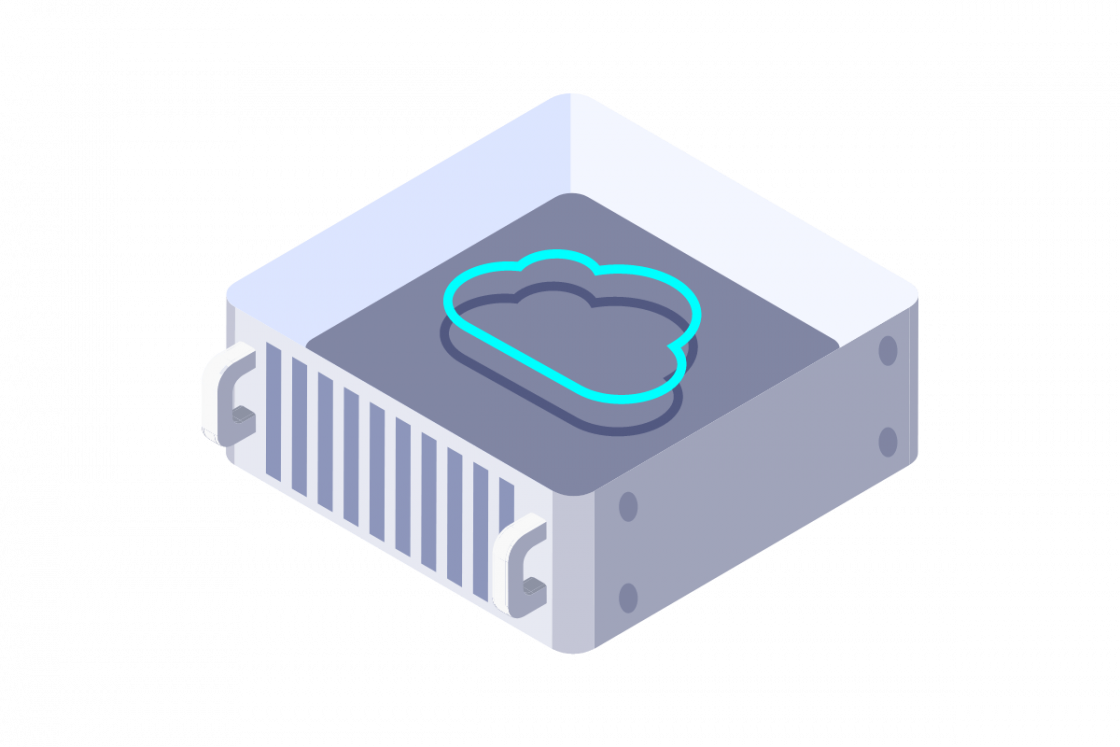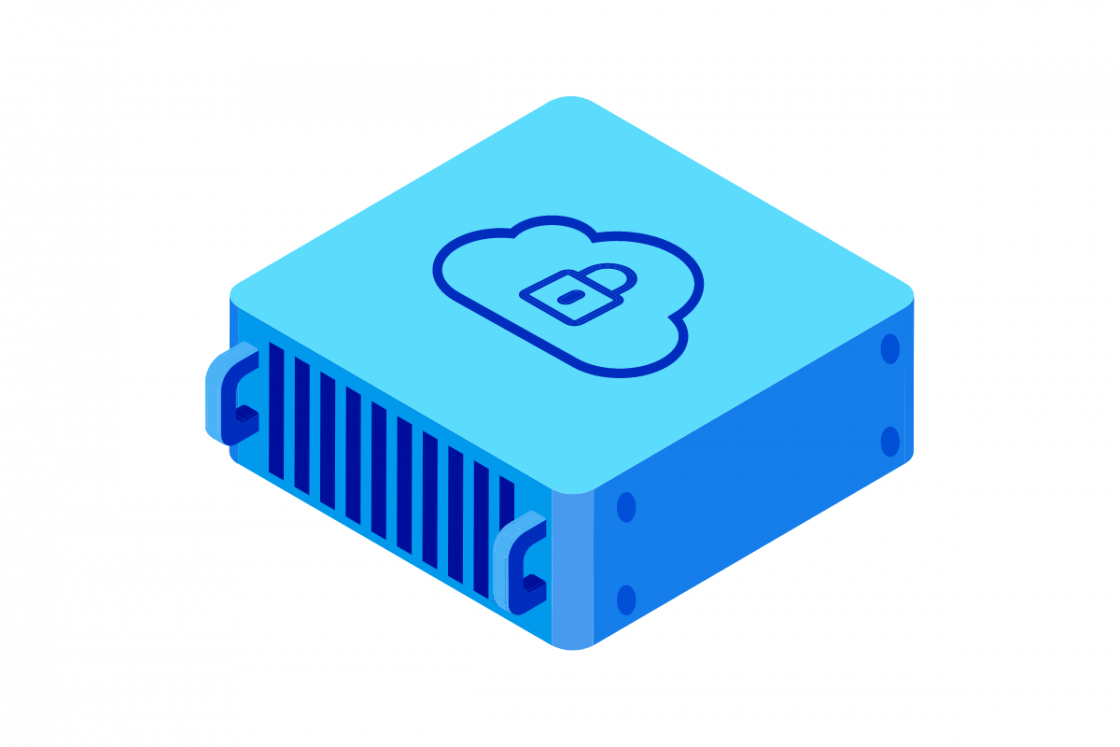Dedicated server vs. non-dedicated server
When it comes to hosting, one of the biggest decisions you’ll face is choosing between a dedicated server and a non-dedicated server. This choice isn’t just technical, it affects how fast your site loads, how secure your data is, and how well your infrastructure scales as you grow. Whether you’re running a large-volume online store, a personal blog, or a gaming platform, understanding the difference is crucial. In this article, we’ll break down everything you need to know, so you can confidently choose the right solution—and get the most out of your server.

Dedicated and non-dedicated servers
What is a dedicated server?
Think of a dedicated server as your own private, super-powered machine—with all the CPU, RAM, and storage entirely at your disposal and not shared with anyone. This means you get faster performance, stronger security, and full control over how it runs. It’s the go-to choice for businesses and developers looking for top-tier access and customisation.
What is a non-dedicated server?
A non-dedicated server is more of a shared space. You still get your own environment, but the physical machine is utilised by several other users. It’s a great budget-friendly option for lightweight websites or projects not requiring the horsepower of a dedicated server. Just keep in mind: since resources are shared, computing power and flexibility can vary.
Key differences between dedicated and non-dedicated servers
Dedicated servers give you exclusive access to all server resources, which translates to top-notch performance and security. On the other hand, non-dedicated servers share resources among several users, so output can vary and there may be some security trade-offs. Here’s a quick breakdown of key differences:
| Feature | Dedicated server | Non-dedicated server |
| Resource allocation | All server resources are 100% yours. | You share CPU, RAM, and storage with other users on the same machine. |
| Performance | Consistent, top-level computing power, ideal for demanding workloads. | Can vary depending on what other users are doing on the same server. |
| Customisation | Full root access and total control over configurations and software. | Limited ability to customise server settings or install specific tools. |
| Security | Stronger isolation and data protection, perfect for sensitive regulated environments. | Vulnerabilities and risks are somewhat higher in a non-dedicated environment, especially if other users aren’t secure. |
| Price | More expensive, but packed with speed and reliability. | Lower cost, great for basic capabilities and low-scale projects. |
Why choose a dedicated server?
When computing power, exclusive access, and security really matter, a dedicated server is hard to beat. Here’s why so many businesses and developers turn to this hosting option:
- Blazing-fast speeds
Since all resources (CPU, RAM, storage) are reserved just for you, your website or app runs fast and consistently, no matter the traffic. - Maximum protection
Dedicated servers offer an isolated environment, making them ideal for handling sensitive data and reducing exposure to vulnerabilities from other users. - Full customisation
Install exactly what you need, tweak configurations, and run software tailored to your project, no compromises. - Scalability
Dedicated servers grow with you, whether you’re dealing with a slow start or a sudden spike in traffic during peak seasons, you can easily scale up your resources to match demand. - Regulatory compliance
Dedicated servers give you privacy and exclusive access, so they’re ideal for regulated sectors (healthcare, finance, and government) where data protection is a priority.
Why go for a non-dedicated server?
- Budget-friendly: It’s ideal for startups and small businesses looking to keep expenses low. You get solid performance without the expense of dedicated hardware.
- Ease of use: With managed services, providers such as OVHcloud take care of the underlying infrastructure setup and ongoing maintenance, which means even non-technical users can manage hosting with ease.
- Fast setup: Getting your website or app online is a snap; no complex configuration or waiting around for provisioning.
- Zero maintenance hassles: Because the hosting provider handles updates, patches, and server upkeep, you save time and avoid the hassle of manual maintenance.
- Scalability: You can start with basic features and scale when you’re ready. Upgrading to a higher plan is quick and flexible as your traffic or project demands grow.
Use cases: When should you pick either server type?
Dedicated server
- Frequently visited websites and e-commerce platforms that can’t afford slowdowns or downtime during peak hours.
- Resource-intensive applications and databases needing consistent processing power and memory.
- Gaming servers requiring low latency to deliver smooth, real-time experiences for users.
- Organisations bound by strict regulations to meet industry standards and protect sensitive data.
Non-dedicated server
- Personal blogs and small business websites that need a reliable presence without heavy infrastructure.
- Development and testing environments where flexibility matters more than maximum output.
- Startups with limited expertise that want simple hosting without complex configurations.
- Projects with fluctuating resource demands not requiring constant high-capacity performance.
How do dedicated servers work?
If there’s one thing you can always count on with dedicated servers, it’s full control. They’re hosted in datacentres and connected to ultra-fast networks. You get full admin access, to install the software you want, fine-tune settings, and manage security your way. It’s all designed to deliver the power, speed, and flexibility your workload demands.
With Virtual Private Cloud and Private Cloud solutions, you get dedicated infrastructure, perfect for setting up secure, isolated environments tailored to your workloads.
How do dedicated and non-dedicated servers compare?
Performance
Dedicated server: Provides stable, superior output that isn’t affected by anyone else. It’s perfect when speed and reliability are non-negotiable, think mission-critical apps or websites with significant traffic. High-stake gamers, for example, get a lot out of dedicated servers—faster speeds, total control, and virtually no lag.
Non-dedicated server: Depends on what others on the server are doing. It performs best on lighter workloads and projects without a constant power demand. Personal brands, blogs, and small businesses can enjoy a powerful online boost with this type of server.
Cost
Dedicated server: It’s a bigger investment upfront and requires ongoing maintenance—but you’re getting top-tier efficiency, security, and flexibility in return. You can also count on it when workloads shift, letting you scale without hitting infrastructure limits.
Non-dedicated server: Much more affordable, making it a solid choice for low-scale projects or businesses keeping an eye on their budget. Some providers offer affordable, beginner-friendly essentials like domain management, email services, and one-click apps, which are great for blogs, lightweight business sites, and anyone starting out.
Security
Dedicated server: With your own isolated environment, you have stronger security and less risk of issues caused by others. This is ideal for handling sensitive data or strict compliance needs. Some dedicated server providers offer more advanced security features, such as DDoS protection and robust firewalls, particularly for customers needing superior protection.
Non-dedicated server: Because resources are shared, there’s a greater risk if another website gets compromised, so staying up to date with patches and best practices is a must. One way to protect your projects is to opt for anti-spam and default anti-virus protection (for mailboxes), or security options available for this server type.
Dedicated vs. VPS vs. shared hosting: Key differences
| Hosting type | Resource allocation | Performance | Customisation | Ideal for |
| Dedicated | Exclusive | High | Full | Large enterprises, heavy traffic websites |
| VPS | Partitioned | Moderate | Partial | Growing businesses, developers |
| Shared hosting | Shared | Variable | Limited | Personal blogs, lightweight websites |
Choosing the right server type for your project
Picking the right hosting isn’t just about price, it’s about finding what fits your workloads. Here are a few key things to keep in mind:
- Traffic volume: If your website gets a lot of visitors—or you expect it to—then you should prioritise reliability and speed. This is well within the capabilities of a dedicated server.
- Budget: On the other hand, if you’re just getting started or running a simple project, shared or VPS hosting offer great value without a steep price point. It’s a smart move for tight budgets.
- Technical expertise: Dedicated servers give you full control, but with great power comes the need for specific skills. If you or your team aren’t comfortable managing server settings, shared or managed options might make life easier.
- Security: The isolation of a dedicated server provides stronger protection and reduces the risk of exposure from other users. This makes it a go-to for hosting sensitive data or running applications needing strict compliance.
Key takeaways
- Go for a dedicated server when you need top speed, stronger protection, and exclusive access to your server environment. It’s a great fit for large-scale applications, e-commerce platforms, or any organisation with strict compliance requirements.
- Dedicated servers typically cost more because they come with exclusive resources and more advanced features. If you’re on a budget, non-dedicated servers are the more affordable choice, perfect for low-scale projects or businesses with tighter resources.
- Because dedicated servers are highly scalable, you can easily upgrade the hardware and expand resources to meet your growing needs. That said, VPS and cloud-based non-dedicated servers also offer scalable options, depending on what your provider supports.
Non-dedicated servers work well for personal blogs, resource-light business sites, or for development and testing environments, while dedicated servers shine with busy websites, demanding applications, and setups that need top-level safeguards. To get a general idea, you can check out this page.
How OVHcloud supports both dedicated and non-dedicated hosting
Whether you’re running a personal site, a growing business, or a large-scale application, we deliver flexible, powerful, sustainable hosting solutions to meet your needs, all backed by industry-leading infrastructure, innovation, and support.

Public Cloud
Easily scale your apps with on-demand resources. Enjoy the flexibility to adapt to changing workloads and grow seamlessly, without being held back by infrastructure issues. With Local Zones in key worldwide locations and a robust network infrastructure, you can deploy your services close to your users for lower latency and faster response times.

Bare Metal servers
Unlock high performance and reliability with powerful Bare Metal servers, perfect for demanding workloads, low latency, and custom configuration needs. You can also explore our Game server ranges, designed for low latency, consistent availability, and resilience. What’s more, you get smooth, real-time processing, and built-in Game DDoS protection tailored for gaming environments.

VPS hosting
Want more control and capabilities without the full cost of a server? Our VPS gives you the freedom of dedicated resources at a fraction of the cost. Scale as you go, with full root access, guaranteed provisioning and a range of configurations to match your project’s demands.
So, whether you’re launching a personal project or managing enterprise-level infrastructure, you have the freedom, flexibility, and confidence to build your digital future, securely and sustainably.